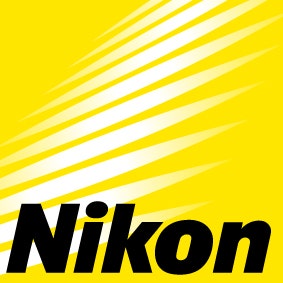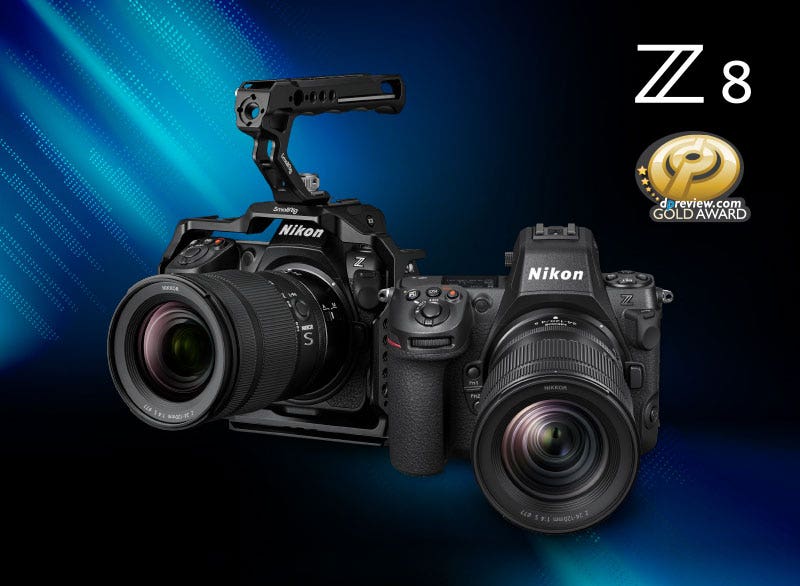Nikon Asia and its corporate websites and external third-party partners use cookies to improve our website and enhance your user experience. We use analytic cookies and marketing cookies to learn from user information, personalise advertisements and measure their effectiveness. These cookies track information such as how users navigate and use our website, users' analytics, and data on users' purchases. By clicking on "Accept Cookies" or continuing to browse without changing your settings, you agree and consent to the use of cookies by this website. For more information, please view our Privacy Policy
Obsession for details. Uncompromising Zoom.
The highly desirable 70-200mm telephoto zoom has come to the Z series. Sports, concerts, weddings, wildlife, portraiture and so much more—all with the incredible low light performance of an f/2.8 made only better by the optically superior Z mount. Optical advancements support passionate cinematographers and videographers. Class-leading close focus ability. Superior aberration suppression. And the most comprehensive optical VR image stabilisation in the history of NIKKOR interchangeable lenses. The NIKKOR Z 70-200mm f/2.8 VR S sets an impressive new standard for fast telephoto zoom lenses optimised for the next generation of Nikon's advanced mirrorless cameras.
S-Line
NIKKOR quality at its absolute best.
At the top of the ever-expanding NIKKOR Z lens lineup, S-Line lenses push Nikon’s tradition of optical excellence and innovation to unprecedented new heights. Superior performance and resolution. Sophisticated features and operability. Specialised technologies and reliability enhancements. All while taking full advantage of the monumental Nikon Z mount and adhering to the strictest image quality and build standards.


Class-leading close focusing.
For greater framing versatility, the NIKKOR Z 70-200mm f/2.8 VR S is capable of extremely short minimum focusing distances, allowing the lens' speed and performance enhancements to be realised in remarkably tight shooting scenarios. At 70mm, focus can be achieved as close as 0.5m from the subject, virtually unheard of in a telephoto zoom of this focal range.
The finest of details
The NIKKOR Z 70-200mm f/2.8 VR S captures astoundingly sharp images with captivating resolution and glorious clarity all the way to the edges of the frame. Its superior VR performance ensures exceptional sharpness when shooting handheld. And to combat colour fringing while close focusing, an all-new multi-focusing system delivers fast, accurate autofocusing while drastically reducing aberrations.




Smooth, fast and quiet autofocusing.
Powered by an ultra-quiet stepping motor (STM), autofocusing is fast, silent and incredibly accurate. Where camera noise can be distracting or problematic—street photography, wedding ceremonies, wildlife or on video productions—STM is a silent partner.
Superior colour and sharpness.
Ultimate aberration correction—virtually zero flare, ghosting, coma or chromatic, spherical and axial aberrations, even at the far edges of the frame. A new SR (Short-wavelength Refractive) glass element further combats chromatic aberrations caused by challenging short-wavelength light.
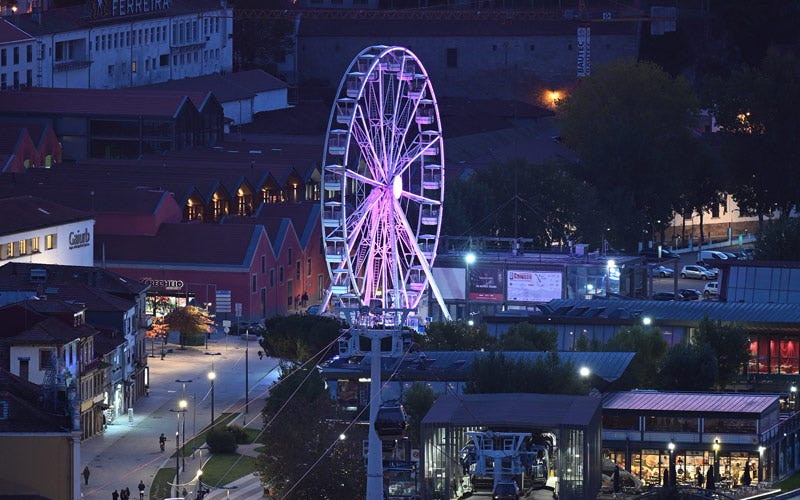

Brilliant in low light.
The exceptional combination of a bright f/2.8 aperture, high resolution NIKKOR optics and the brilliant Z mount makes the NIKKOR Z 70-200mm f/2.8 VR S a tireless low light performer capable of clean, sharp images and faster shutter speeds in dark scenes and interiors.


Frame-filling brightness.
One of the many advantages of the larger Z mount is its ability to retain even illumination, especially at the corners of the frame, for bright, even exposures with minimal vignetting.


Blurred so beautifully
Attached to the Z Mount, the largest full frame lens mount in the industry, the NIKKOR Z 70-200mm f/2.8 VR S is capable of producing stunning bokeh qualities beyond the capabilities of comparable lenses.


Steadier than ever.
With built-in optical VR image stabilisation effective for up to an unprecedented 5.5 stops* and Z series' high performance in-body image stabilisation, tack-sharp images are easily achieved when shooting handheld. During video shooting, additional electronic VR (e-VR) can be enabled for even greater stability.
Highly-cinematic.
The NIKKOR Z 70-200mm f/2.8 VR S is a remarkable lens for video applications. Smooth, silent AF with virtually no focus breathing. Standard 77mm filter support. Superior optical image stabilisation combines with the camera's* in-body image stabilisation and Electronic VR. All of this added to the versatility of the highly useful 70-200mm focal range.
*In-body image stabilisation not available in all Z series cameras.
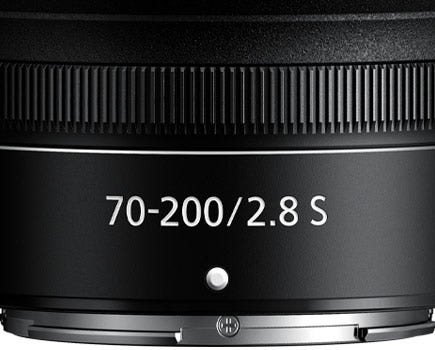

Customisable control ring.
The control ring can be used for quiet aperture control (great for iris transitions during video recording or situations where complete silence is critical), exposure compensation or ISO adjustments.
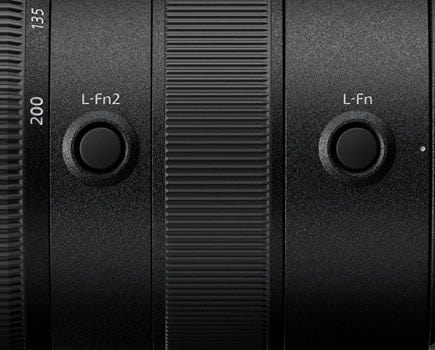

Customisable shortcut buttons.
The NIKKOR Z 70-200mm f/2.8 VR S features two convenient customisable Fn buttons right on the lens barrel. Set them to streamline your shooting experience—preview depth of field, lock focus, magnify to confirm focus and more.
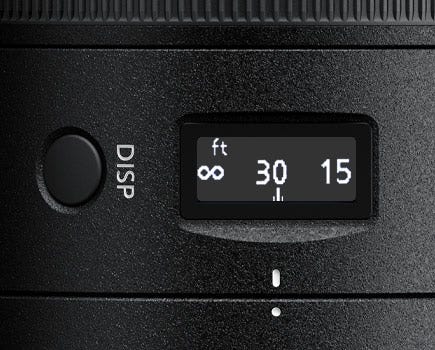

Lens information panel.
A dimmable, built-in EL (Electroluminescent) display panel allows quick, convenient confirmation of aperture, focal length, focus distance and depth-of-field, even in dark situations.
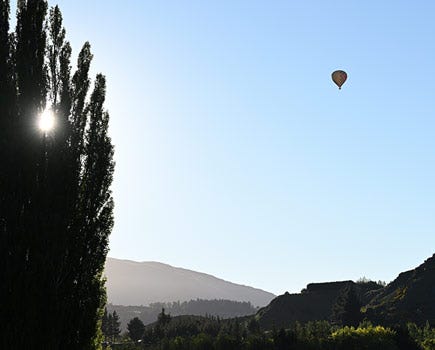

Optimal anti-reflective performance.
When subjects are backlit, incidental light can streak across the frame causing unwanted ghosting, reflections and flare. To counteract these anomalies and ensure crisp, clean images, the NIKKOR Z 70-200mm f/2.8 VR S employs two of Nikon’s most advanced lens coatings: Nano Crystal Coat for eliminating incidental light from a diagonal direction and ARNEO Coat for eliminating incidental light from a vertical direction.
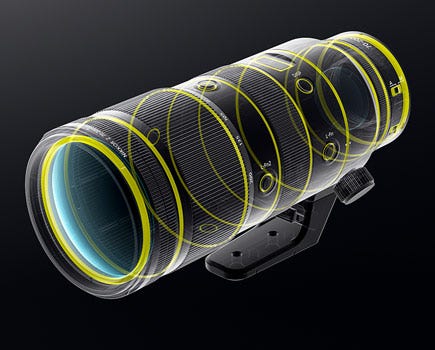

Dust and Drip resistant.
Extensively sealed to keep dust and moisture out, especially around all moving parts of the lens barrel, for worry-free durability.
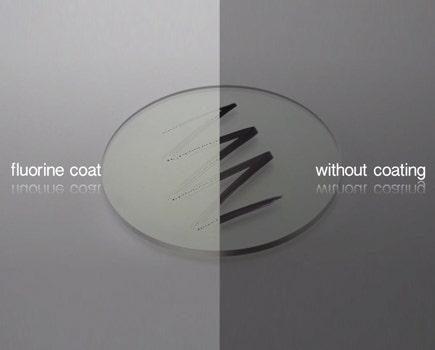

Flourine keeps it clean.
Fluorine Coat, Nikon's proprietary dust, dirt and moisture repellent, provides enhanced antifouling performance, ensuring easy removal of all types of grime from the lens surface—a life-saver when shooting in harsh conditions.
Next-Generation Z Design and Optics.
Designed and optimised to take full advantage of the Z system's larger mount, Z lenses gather substantially more light, providing even illumination and improved sharpness from the centre of the frame to the far edges. Autofocusing is fast and quiet. Video recording is clean and smooth with highly minimised focus breathing and reduced wobbling. Intuitive on-lens controls can be customised to your individual shooting style and so much more. Z lenses are designed with a sense of consistency that combines reliability and beauty with next-dimension optical performance for complete freedom in image creation.
The NIKKOR Z Advantage
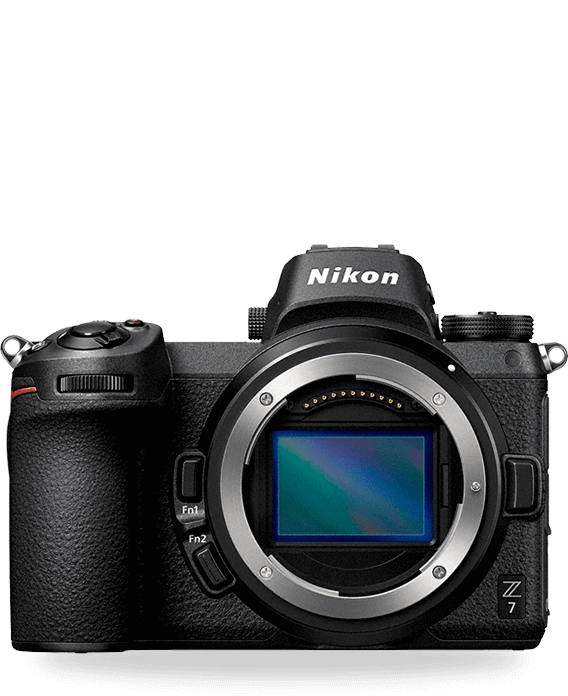 |
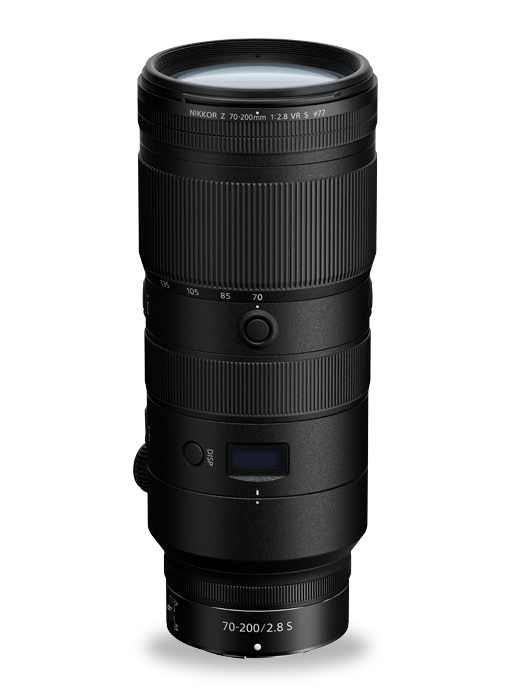 |
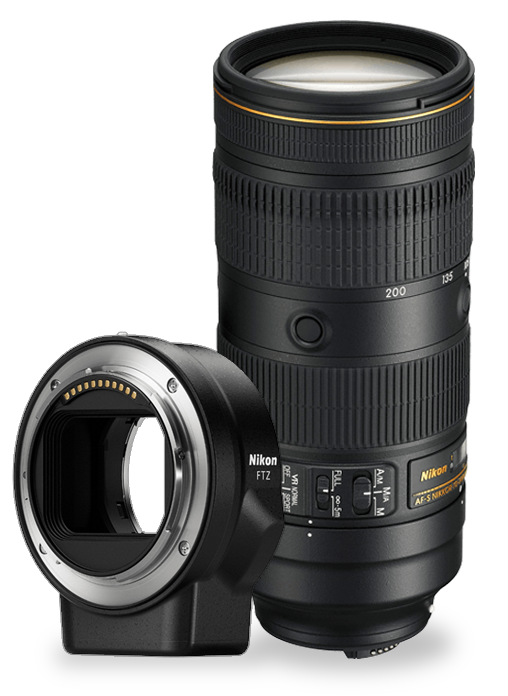 |
| NIKKOR Z 70-200mm f/2.8 VR S | NIKKOR 70-200mm f/2.8E FL ED VR (using Mount Adapter FTZ |
|
| IN-CAMERA IMAGE STABILISATION | 5-Axis* / 5.5 Stops | 3-Axis / 4 Stops |
| AF MOTOR NOISE | Virtually Eliminated | Near Silent |
| MULTI-FOCUSING SYSTEM | ✓ | - |
| MIN. FOCUS DISTANCE | 0.5m (W) - 1.0m (T) | 1.1m |
| ASPHERICAL LENS ELEMENTS | 2 | 0 |
| HIGH- AND SPECIALISED-DISPERSION GLASS (SR) | 1 | 0 |
| ANTI-REFLECTIVE COATING | Nano + ARNEO | Nano |
| MINIMISED FOCUS BREATHING | ✓ | - |
| CUSTOM CONTROL RING | ✓ | - |
| OPTIONAL MOUNT ADAPTOR | - | Required |
| MOUNT DIAMETER / FLANGE DISTANCE | 55mm / 16mm | 47mm / 46.5mm |
*When used with Z cameras that feature in-camera VR.
Technology


ARNEO Coat
An anti-reflective coating developed by Nikon and used in conjunction with Nano Crystal Coat to further reduce ghost and flare effects caused by incident light entering the lens vertically. This allows for the outstandingly clear capture of images even when a light source is located within the frame.


Fluorine Coat
Photographers need gear that can withstand the elements. Nikon’s fluorine coat effectively repels dust, water droplets, grease or dirt, ensuring easy removal even when they adhere to the lens surface. Nikon’s fluorine coat endures a high frequency of lens surface wiping and its anti-reflective effect also contributes to the capture of clear images.


Stepping Motor
NIKKOR Z lenses use a stepping motor for fast, accurate, smooth, quiet autofocus with reduced wobbling. This quiet drive system makes the lenses ideal for use when shooting video.


Aspherical Lens
A lens with a curved, non-spherical surface. Used to reduce aberrations and enable a more compact lens size. Aspherical lenses minimise coma and other types of lens aberrations, even when used at the widest aperture. They are particularly useful in correcting distortion in wide-angle lenses and help contribute to a lighter, more compact design by reducing the number of standard (spherical) elements necessary. Aspherical lens elements correct these distortions by continuously changing the refractive index from the centre of the lens.


Electromagnetic Diaphragm Mechanism
An electromagnetic diaphragm mechanism in the lens barrel provides highly accurate electronic diaphragm or aperture blade control when using auto exposure during continuous shooting.


IF Lens
A NIKKOR lens in which only the internal lens group shifts during focusing. Thus, IF NIKKORS do not change in size during AF operation, allowing for compact, lightweight lenses capable of closer focusing distances. These lenses will be designated with the abbreviation IF on the lens barrel.


ED (Extra-Low Dispersion) Glass
An optical glass developed by Nikon that is used with normal optical glass in telephoto lenses to obtain optimum correction of chromatic aberrations.


Super Integrated Coating
Nikon Super Integrated Coating is Nikon's term for its multilayer coating of the optical elements in NIKKOR lenses.


Vibration Reduction
A Nikon in-lens technology that improves image stability by automatically compensating for camera shake. Lenses that offer VR will feature the abbreviation VR on the lens barrel.


Short-Wavelength Refractive Lens
SR is a high- and specialised-dispersion glass lens that refracts light with wavelengths shorter than that of blue. By controlling short-wavelength light, the lens is able to achieve highly precise chromatic aberration compensation so that the colours in your images are more accurately reproduced. It also allows for more flexible optical designs, which allows for compact, lighter lenses to be designed.


Fluorite Lens Element
Fluorite (FL), a lightweight mono-crystal optical material, has excellent optical properties while reducing overall lens weight to improve balance and handling, especially useful in longer focal length lenses.


Nano Crystal Coat
An anti-reflective coating developed by Nikon that virtually eliminates internal lens element reflections across a wide range of wavelengths. Nano Crystal Coat solves ghost effects caused by red light and effectively reduces ghost and flare caused by light entering the lens diagonally.
*Based on CIPA Standard: this value is achieved when attached to a FX-format camera with the camera’s VR function set to “NORMAL”, and when zoom is set to the maximum telephoto position.
The lens incorporates an electromagnetic diaphragm mechanism. The following cameras are compatible with this lens: Z 5, Z 50, Z 7II, Z 7, Z 6II, Z 6.
LCD, Video and Photo Gallery images are for illustrative purposes only.
